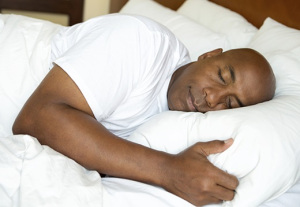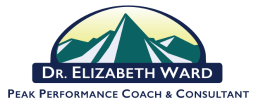
No one feels quite their best, physically or mentally, after a restless night. Falling out of the routine set by our body’s circadian rhythm makes exhaustion more than a nuisance… it becomes an impediment. Simple tasks become difficult, as lack of sleep impairs concentration levels and decision-making skills. Productivity plummets when employees are generally not getting enough sleep. In 2016, the RAND Corporation found that sleep deprivation cost the U.S. economy $411 billion dollars in a year alongside over 1 million lost workdays, either from oversleeping or skipping due to an illness they were more vulnerable to due to lack of sleep. On an individual level, an employee could be losing up to 11 days in productivity and $2280 in wages per year. What is crazier is that even sleeping just 30 extra minutes per night could make the difference!
The common consensus is that adults need about 8 hours of sleep per day to achieve their maximum capacity of productivity the following day. However, on average, adults get around 6.5 hours of sleep. Most people dismiss this 1.5 hour difference, as they have a warped understanding of what sleep is. Rather than simply a passive ‘recharge,’ sleep is a period of mental maintenance, during which countless activities are taking place. Memories are consolidated and stored, glucose and chemical levels are replenished to provide fuel for the brain on the following day, neuroplastic synaptic connections are adjusted, and beta-amyloid plaque build-up is removed.
The effects extend far beyond cognitive function; sleep is integral to athletic and physical performance. Deep sleep is responsible for much of the muscle and tissue restoration and repair, and without sufficient rest, athletes tire 11% faster than their well-rested counterparts, leading to submaximal performance. The Gatorade Sports Science Institute studied the performance of athletes across various sports, and found that well-rested athletes experience increased exercise abilities as a result. More specifically, tennis players have a 4.2% increase in their hitting accuracy, and basketball players shoot 9% more accurately from both the three-point and free throw lines. In addition, reaction times, motivation and focus are aided by sleep, improving performance.
Even among non-athletes, the physical impacts of losing sleep are serious. Consistent sleep deprivation has been linked to several health issues, including diabetes (Type 2), obesity, and cardiovascular disease, and risk of stroke. Immune function may decrease, leaving one’s systems susceptible to infection or common illnesses, possibly affecting personal and professional life.
In the office, sleep can be the distinguishing factor between an effective leader and workforce, and one that’s unproductive. Studies have found that leaders who arrive sleep-deprived are likely to lose patience and be viewed as less charismatic, which diminishes the experiences of their employees as well. Work environments idolizing sleep deprivation become unhealthy atmospheres in which subordinates become more likely to behave unethically, make incorrect decisions, and procrastinate their assignments. Quality sleep, in contrast, promotes creativity, cognitive skills, emotion management, and problem-solving ability, as well as better working relationships. Companies including Google and Aetna have begun to provide ‘nap pods’ where employees can recharge or cash incentives as encouragement to reach a certain amount of sleep.
Surprisingly, the effects of sleep can bleed into our social lives as well. Researchers at U.C. Berkeley found that sleep-deprived people feel less inclined to enter social interactions, avoiding contact as someone with social anxiety might. Furthermore, those who are unrested are perceived by others as socially repulsive, exacerbating the social-isolation sleep loss fosters in this cyclical manner. Fatigue can hinder emotion regulation and recognition, resulting in this ‘daytime interference’ of our social skills when tired.
In order to conquer the unhealthy cycle of sleep deprivation, experts suggest 15-20 minute ‘power naps,’ establishing a night-time routine, and turning down bright lights and devices about an hour before bed. However, the most important requirement is to stick with your new and improved 8-hour sleep schedule; only then can you reap the many benefits of a good night’s sleep.
Questions? Here’s a TedEd video about what would happen if we didn’t sleep!
Sources:
- https://www.nobelprize.org/prizes/medicine/2017/press-release/
- https://www.lifetothefullest.abbott/en_in/articles/finding-a-good-night-s-sleep-and-inner-peace.html
- https://www.vpppa.org/connect/blog/sleep-and-its-impact-on-the-modern-day-workplace
- https://www.tuck.com/productivity-and-sleep/
- https://hbr.org/2018/09/sleep-well-lead-better
- https://www.chieflearningofficer.com/2016/08/31/sleep-affects-performance%E2%80%8A-%E2%80%8Aand-companies-can/
- https://www.sleepfoundation.org/excessive-sleepiness/performance/good-nights-sleep-helps-job-performance
- https://www.hult.edu/blog/how-sleep-deprivation-affects-work-and-performance/
- https://www.gssiweb.org/sports-science-exchange/article/sse-167-sleep-and-athletes
- https://www.thorne.com/take-5-daily/article/the-importance-of-sleep-in-athletic-performance
- https://www.fatiguescience.com/blog/5-ways-sleep-impacts-peak-athletic-performance/
- https://www.psychologytoday.com/us/blog/talking-apes/201710/how-lack-sleep-affects-your-social-life
- https://www.universityofcalifornia.edu/news/poor-sleep-can-literally-kill-your-social-life

